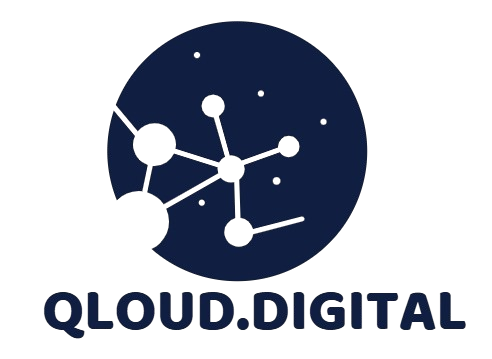In the digital underground where chaos reigns supreme, even the most secretive corners aren’t immune to betrayal. This week, the notoriously anarchic image board 4chan—home to memes, mayhem, and a decades-long commitment to anonymity—has found itself under siege. Not from outside cyberforces or governments, but, allegedly, from within.
A suspected hack, still cloaked in uncertainty, is threatening to blow the cover off the very individuals who’ve kept 4chan’s wild engine running in the shadows. Longtime site administrators—once known only by cryptic handles and untraceable IP addresses—may be closer than ever to exposure.
While the details remain murky, early indications suggest this breach is less a product of elite cyberwarfare and more the result of an internal rift: infighting that’s spilled into the public eye and potentially pierced the platform’s most sacred veil—its anonymity.
The Leaky Fortress of Anonymity
4chan has always operated like a digital ghost ship. Founded in 2003, the site cultivated a space where users could post without the burden—or accountability—of identity. That anonymity fueled its culture: irreverent, chaotic, and often controversial. For better or worse, it birthed memes that would dominate the internet (think Pepe the Frog and Rickrolling), while also hosting some of the darker corners of online discourse.
Moderation was famously light, often erratic, and ultimately guided by a relatively small, tight-lipped circle of administrators and moderators. These individuals, known only by usernames and rarely acknowledged outside their walled-off staff channels, formed the invisible scaffolding of the site’s architecture.
Until now.
Breach, Betrayal, or Both?
News of the breach first surfaced in forums adjacent to 4chan, with users claiming that administrative tools had been accessed or leaked. Rumors soon followed that private staff logs and user IP data may have been exposed. Screenshots circulated, some purporting to show internal communications, others suggesting that admin identities—some dating back years—were potentially compromised.
Though none of these claims have been officially confirmed, the whispers alone have ignited a frenzy across the site. Speculation is rampant, and paranoia is thick. Longtime posters are revisiting old threads, deleting archives, or abandoning aliases altogether. The unspoken contract between the platform and its community—post freely, without fear of being tracked—suddenly seems more fragile than ever.
According to some sources, this wasn’t a conventional hack. Rather, insiders suggest it may have stemmed from a schism among site staff, with access credentials shared, stolen, or leaked during a personal fallout. If true, it marks a deeply ironic twist: a platform that thrives on infighting, raids, and internal drama may have just been undone by the very same forces.
Identity in the Age of Digital Masks
While the internet has long been a theater for pseudonymous expression, 4chan stood as its most extreme embodiment. No user accounts. No likes or followers. Just pure content, judged only by its shock value or creative edge.
But even in this stripped-down environment, someone had to run the show. Someone had to pay the server bills, approve the bans, manage the flood of illegal content, and police the platform’s own chaotic ethos. These were the admins and “jannies” (janitors, in community slang), often mocked, sometimes revered, and almost never known by name.
The threat of exposure isn’t just about embarrassment or internet clout—it could have real-world consequences. For those who have moderated controversial or legally questionable content, anonymity has offered protection not just from public scrutiny, but from legal liability.
If their identities are indeed revealed, they could face harassment, lawsuits, or worse.
What Happens When Anonymity Fails?
This incident echoes broader questions about privacy, governance, and control in online spaces. For years, 4chan has resisted modernization efforts that might compromise its unfiltered nature. It’s remained fiercely independent, despite (or because of) controversies that have made advertisers and investors flee.
But in 2024, maintaining that level of anonymity and independence is harder than ever. Hosting costs rise. Law enforcement attention intensifies. Competing platforms spring up and adapt. And the infighting that was once part of the fun now threatens the platform’s very foundation.
If the breach is real—and if long-obscured admin identities are unmasked—it could shift the power dynamics not only within 4chan, but across the wider ecosystem of fringe internet communities that look to it as a blueprint.
A Fractured Future?
4chan has survived countless controversies, media storms, and internal rebellions. But the threat it now faces strikes at the heart of what the site has always promised: anonymity without consequence, authority without identity.
Whether this alleged hack will lead to a full-scale unmasking or be quietly swept under the rug remains to be seen. The site’s administrators have yet to release a public statement, and users are left to parse cryptic messages and digital breadcrumbs. Meanwhile, the community is already morphing—splintering, rebranding, retreating to backup forums or spinning new conspiracies about who betrayed whom.
If 4chan is the internet’s id, this breach is its Freudian slip. What lies beneath the mask is no longer just a mystery—it’s a potential reckoning.
As the dust settles and the truth begins to emerge, one thing is clear: even the web’s most anonymous empires are not immune to collapse. Especially when the cracks start from within.




